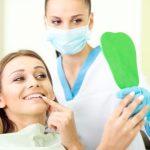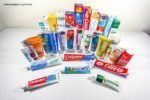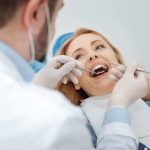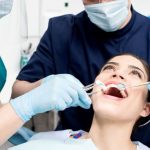Quick Guide: How Long Should You Wait to Eat After Teeth Cleaning?
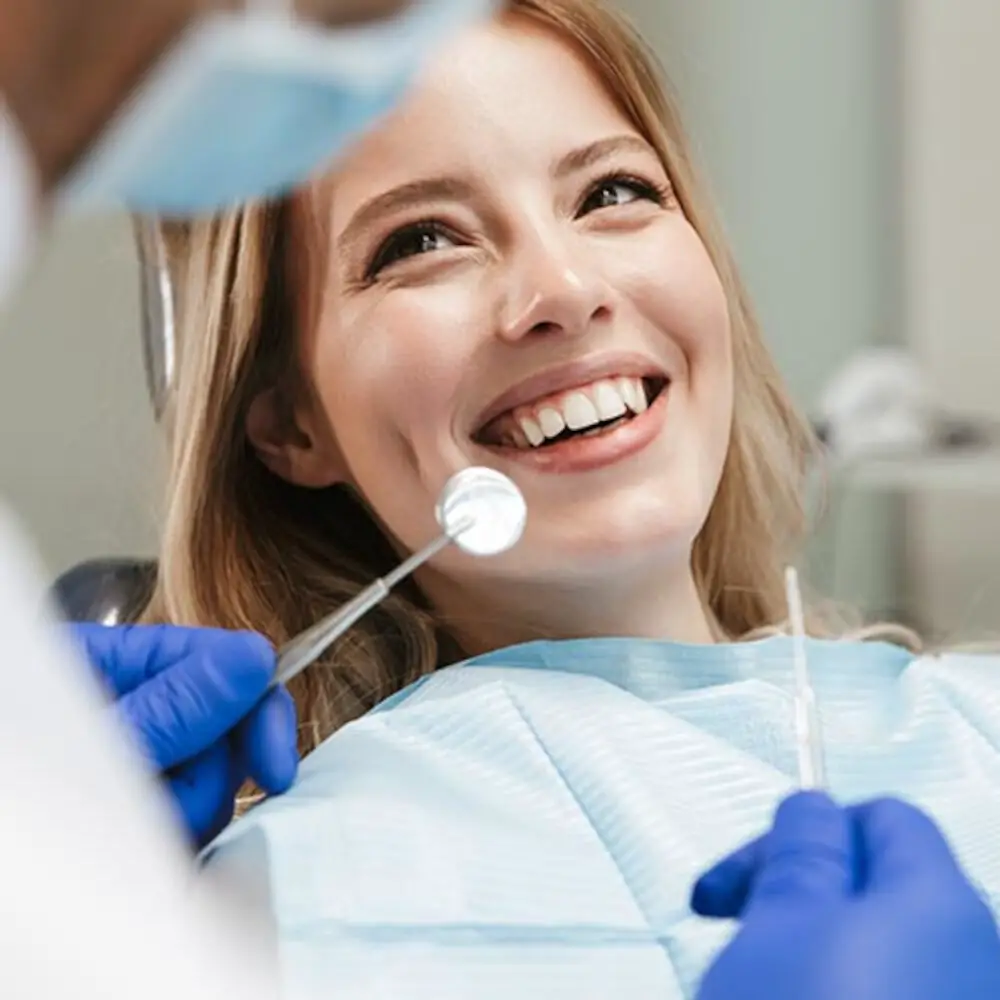
Maintaining good oral hygiene is essential for overall health and well-being. Regular teeth cleaning is one of the most important aspects of dental care, as it helps remove plaque and tartar buildup, preventing tooth decay, gum diseases, and bad breath. But, have you ever wondered how long you should wait to eat after teeth cleaning?The answer to this question is not straightforward, as it depends on various factors such as the type of cleaning you had, the extent of the cleaning, and your oral health. In general, it is recommended to wait at least 30 minutes to an hour after teeth cleaning before eating or drinking anything. However, your dentist may advise you to wait longer depending on your individual circumstances. In this quick guide, we will go over the different types of teeth cleaning procedures, their effects on your teeth and gums, and how long you should wait to eat after each procedure.
It is crucial to wait after teeth cleaning to ensure that the cleaning process is effective and the benefits last longer. During the cleaning process, your dentist or hygienist scrapes off the accumulated tartar and plaque from your teeth, which leaves your teeth and gums vulnerable. If you eat or drink anything immediately after cleaning, it can wash away the fluoride treatment and promote bacterial growth, which can increase the chances of tooth decay and gum disease. Therefore, it is recommended to wait at least 30 minutes after teeth cleaning before consuming any food or drink to allow your teeth and gums to absorb the fluoride and regain their strength. By waiting for a short period post-cleaning, you can maximize the benefits of your dental appointment and maintain optimal oral health.
General advice from dentists is to wait at least 30 minutes to an hour after teeth cleaning before eating or drinking anything. This is because during the cleaning process, the dental hygienist removes plaque and tartar from the teeth, which can leave the teeth more sensitive. Eating or drinking immediately after cleaning can introduce acids and sugars into the mouth, which can cause further damage to the teeth. Additionally, dentists recommend avoiding hard, sticky, or crunchy foods for a few hours after cleaning to prevent any damage or discomfort to the teeth and gums. It is important to follow the advice of your dentist to maintain optimal oral health and prevent any potential issues.
Why you should wait to eat after teeth cleaning
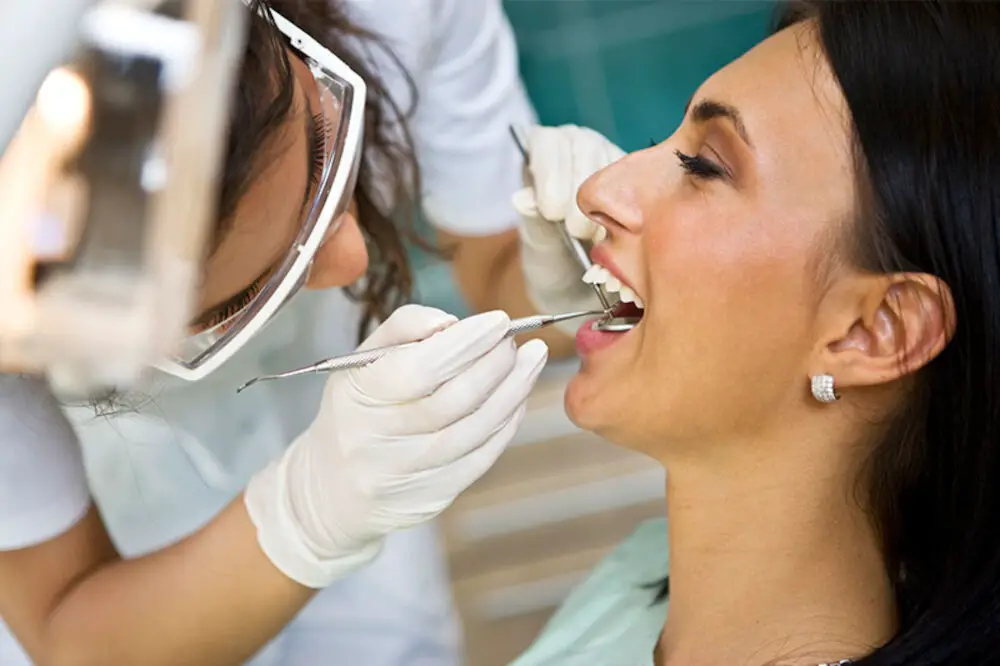
After a thorough teeth cleaning, it is important to wait for a certain amount of time before eating or drinking anything. This is because the cleaning process usually involves the use of abrasive tools and pastes that can cause micro-abrasions on the surface of your teeth. These micro-abrasions can make your teeth more sensitive and susceptible to the acids and sugars that are present in food and drinks. Therefore, it is recommended to wait at least 30 minutes before eating or drinking anything after a teeth cleaning to give your teeth enough time to recover. In addition, waiting to eat after teeth cleaning can also help to ensure that the cleaning process is more effective. Eating or drinking anything immediately after a teeth cleaning can wash away the fluoride and other cleaning agents that have been applied to your teeth during the cleaning process. This can reduce the effectiveness of the cleaning and may result in the need for additional cleanings in the future. Therefore, it is best to wait until your mouth has fully recovered from the cleaning process before eating or drinking anything.
Waiting after teeth cleaning is important for several reasons. Firstly, it allows the fluoride treatment to fully penetrate the enamel of your teeth, strengthening them and making them more resistant to decay. Secondly, it gives your mouth time to recover from the cleaning procedure, reducing the risk of irritation or sensitivity. Finally, waiting before eating or drinking anything gives your saliva time to neutralize any acids in your mouth, which can prevent erosion of the enamel. While it may be tempting to eat or drink immediately after a cleaning, taking the time to wait can improve the overall health and appearance of your teeth in the long run.
Eating too soon after teeth cleaning can pose some potential risks to your oral health. The dentist removes plaque, tartar, and stains during the cleaning process, and this can leave your teeth and gums sensitive. Consuming hot, cold, or acidic foods and drinks can cause discomfort and pain. In addition, eating too soon can promote the growth of harmful bacteria in your mouth, which can lead to cavities, gum disease, and bad breath. It is recommended to wait at least 30 minutes before eating to allow your mouth to heal and recover. It’s better to avoid hard, sticky, or sugary foods that can damage your teeth and gums. It’s also important to maintain good oral hygiene habits, such as brushing and flossing regularly, to keep your teeth and gums healthy.
Food can significantly interfere with the cleaning process of teeth, particularly if it contains high levels of sugar or acid. These substances can stick to the teeth and promote the growth of harmful bacteria, leading to plaque and cavities. Consuming food immediately after teeth cleaning can also negate the benefits of the cleaning, as it can wash away the fluoride treatment and saliva that help protect teeth from decay. Waiting at least 30 minutes after a teeth cleaning session is recommended to allow the fluoride to penetrate the enamel and create a protective barrier. Additionally, foods that require excessive chewing or are hard, crunchy, or sticky can dislodge or damage the newly cleaned teeth, so it is best to avoid these types of foods immediately after a cleaning.
How long should you wait to eat after teeth cleaning?
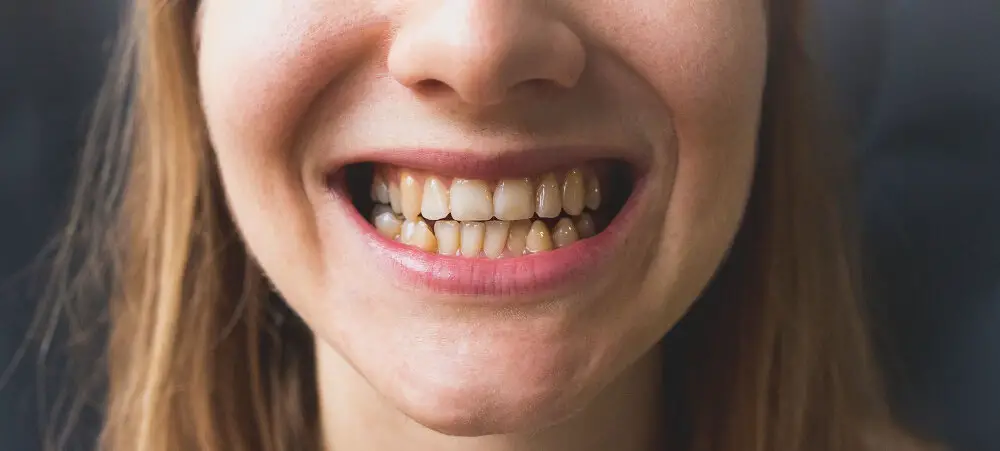
After a dental cleaning, it’s essential to give your teeth and gums time to recover before consuming food or beverages. The recommended waiting time to eat after teeth cleaning is at least 30 minutes. This waiting period allows your mouth to recover from any irritation or inflammation caused during the cleaning process. Furthermore, it gives time for the fluoride treatment to penetrate the enamel, which helps strengthen and protect your teeth. It’s important to note that after a cleaning, your teeth are more susceptible to staining and decay. Therefore, it’s best to avoid consuming highly pigmented or acidic foods and drinks, such as coffee, red wine, citrus fruits, and soda, for at least an hour after your cleaning. Opt for water, plain milk, or non-acidic foods like plain yogurt, cheese, or vegetables. By following these guidelines and waiting the recommended amount of time to eat after teeth cleaning, you can ensure a healthy and long-lasting smile.
When it comes to waiting time after teeth cleaning, there are several general guidelines to follow in order to ensure optimal results. Typically, it is recommended to wait at least 30 minutes before eating after a routine dental cleaning. This allows time for any fluoride treatments to fully absorb into the teeth and for any sensitivity to subside. However, if any additional procedures were performed, such as deep cleaning or scaling and root planing, the waiting time may be longer. It’s important to follow the specific instructions given by your dentist to avoid damaging your teeth or compromising the results of the cleaning. Overall, patience is key when it comes to waiting after dental cleaning to ensure the best outcome for your oral health.
The waiting time after teeth cleaning can be influenced by various factors. The first factor is the type of cleaning procedure that was performed. If the dental hygienist used a traditional cleaning method, the waiting time may be shorter than if an ultrasonic cleaning was used. Another factor is the individual’s oral health. If an individual has a lot of plaque buildup or gum disease, the waiting time may be longer to allow for proper healing. Additionally, the individual’s overall health can also impact waiting time. If an individual has a compromised immune system or is taking certain medications, it may take longer for the gums to heal. Finally, the individual’s compliance with post-treatment instructions can also impact waiting time. If the individual follows the instructions provided by the dental professional, the waiting time may be shorter.
It is crucial to follow your dentist’s recommendations after teeth cleaning to maintain good oral health. Dental professionals have extensive knowledge and experience and can provide tailored advice based on your specific needs. Neglecting their instructions can lead to complications such as gum disease, cavities, and tooth loss. Additionally, following their recommendations can help prevent future dental problems, reduce the need for costly treatments, and keep your smile looking its best. Therefore, it is essential to take your dentist’s advice seriously and implement it into your daily routine to achieve optimal oral health.
What can you eat after teeth cleaning?
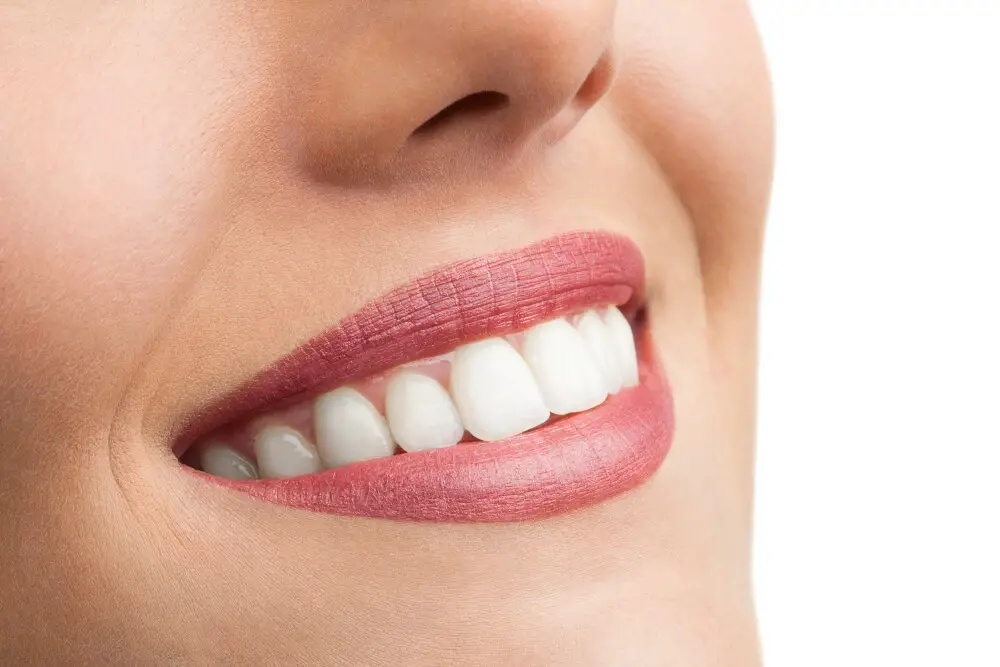
After teeth cleaning, it is essential to be careful with what you eat to avoid any complications. It is best to wait for about 30 minutes to an hour before eating anything. This time will allow the fluoride treatment to take effect and protect your teeth from bacteria and plaque buildup. Moreover, it will give your teeth and gums enough time to recover from the cleaning procedure. During this time, you should avoid any hard, crunchy, or sticky foods that can damage your teeth or dislodge any dental work. Instead, opt for soft, non-acidic foods that are easy to chew and swallow. Some of the best foods to eat after teeth cleaning include yogurt, soup, smoothies, and bananas. Yogurt is rich in calcium, which helps to strengthen and protect your teeth. It is also soft and easy to eat, making it an ideal choice after dental cleaning. Soup is another great option, especially if it is warm and not too hot. It is easy to swallow and provides your body with the necessary nutrients to aid healing. Smoothies are also an excellent choice because they are easy to make and can be customized to your liking. They are also rich in vitamins and minerals that are beneficial for your teeth and gums. Finally, bananas are soft and easy to chew, making them ideal for post-dental cleaning. They are also rich in potassium, which helps to strengthen your teeth and bones.
Soft foods are a great option for those who have just had their teeth cleaned. They are easier on the teeth and gums, reducing the likelihood of any discomfort or damage. Some examples of soft foods include cooked vegetables, mashed potatoes, soup, yogurt, pudding, and applesauce. These foods are not only easy to chew and swallow but also provide essential nutrients that are beneficial for oral health. Additionally, soft foods can be a great way to transition back to solid foods after a dental cleaning or procedure. Overall, incorporating soft foods into your diet can help maintain the health of your teeth and gums while avoiding any unnecessary pain or discomfort.
After a thorough teeth cleaning, it’s important to be mindful of the foods you consume. It’s recommended to avoid any hard, crunchy, or sticky foods that can potentially damage your freshly cleaned teeth. This includes items such as popcorn, chips, and candy. Additionally, foods that are highly acidic, like citrus fruits and juices, can weaken the enamel on your teeth, making them more susceptible to damage. It’s best to wait at least 30 minutes after a cleaning before consuming any food or drink, and to stick to soft, non-acidic options like yogurt, smoothies, and cooked vegetables. By being mindful of your food choices after a cleaning, you can help maintain the health and longevity of your teeth.
Maintaining a healthy diet after teeth cleaning is crucial to promote oral health and prevent any complications. A post-cleaning diet should focus on consuming nutrient-dense foods that are high in vitamins and minerals, such as leafy greens, fruits, and lean proteins. Foods that are sticky or contain excess sugar should be avoided, as they can cause plaque buildup and increase the risk of tooth decay. Additionally, drinking plenty of water is essential to rinse away any remaining debris and keep the mouth hydrated. It is also recommended to wait at least 30 minutes before consuming any food or drinks after teeth cleaning to allow the fluoride treatment to fully absorb into the teeth. By following these dietary recommendations, individuals can maintain a healthy and vibrant smile while preventing any oral health issues.
Tips for maintaining oral health after teeth cleaning
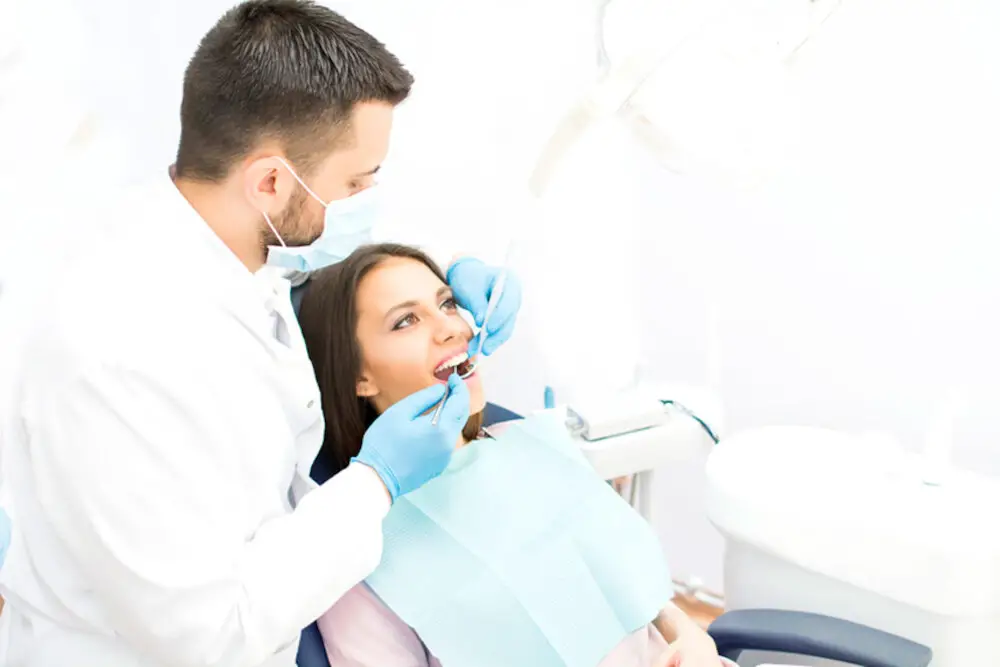
Maintaining oral health after teeth cleaning is essential to keep your teeth and gums healthy. After a professional teeth cleaning, it is important to follow a few simple tips to keep your mouth clean and healthy. Firstly, avoid eating or drinking anything for at least 30 minutes after a cleaning. This will give your teeth and gums time to recover from the cleaning process. Additionally, avoid consuming any sugary or acidic beverages or food which can damage your teeth and cause tooth decay. Another important tip for maintaining oral health after teeth cleaning is to brush and floss your teeth regularly. Brush your teeth at least twice a day with a fluoride toothpaste and floss once a day to remove any food particles and plaque that may have accumulated on your teeth. This will help prevent cavities and gum disease. It is also recommended to use an antiseptic mouthwash to kill any bacteria that may be left in your mouth after brushing and flossing. By following these simple tips, you can maintain good oral health and keep your teeth and gums healthy and strong.
It’s essential to take care of your teeth and gums between professional cleanings to maintain good oral health. Brushing twice a day with a fluoride toothpaste and flossing once a day can help remove plaque and food particles that can cause damage to your teeth and gums. Additionally, using an antiseptic mouthwash can help kill bacteria that cause bad breath and gum disease. Limiting sugary and acidic foods and drinks can also help protect your teeth from decay and erosion. Finally, don’t forget to replace your toothbrush every three to four months or sooner if the bristles become frayed, and schedule regular dental check-ups to catch any issues before they become serious. By following these tips, you can help maintain a healthy smile between professional cleanings.
Regular dental checkups are crucial for maintaining good oral health. These checkups allow the dentist to identify any potential issues early on, such as cavities, gum disease, or oral cancer. If left untreated, these problems can worsen and lead to more serious health issues. In addition, regular checkups can help prevent problems from occurring in the first place, by providing deep cleaning and removing any plaque or tartar buildup. By attending regular dental checkups, patients can ensure that their teeth and gums remain healthy and strong, allowing them to enjoy a full range of foods without discomfort or pain.
Aside from waiting for the recommended time after a teeth cleaning, there are additional steps you can take to promote good oral health. First, make sure to brush your teeth at least twice a day with fluoride toothpaste and floss daily to remove any food debris and plaque buildup. Second, limit your intake of sugary and acidic foods and beverages, as they can erode tooth enamel and contribute to decay. Third, visit your dentist for regular checkups and cleanings, as they can detect and treat any potential oral health issues before they become more serious. Finally, consider using a mouthwash or other oral hygiene products recommended by your dentist to further promote healthy teeth and gums. By following these steps, you can ensure that your teeth remain clean and healthy for years to come.
After every dental cleaning, it’s important to wait before eating for several reasons. Firstly, the cleaning process removes plaque and tartar buildup from teeth and gums, which can leave them sensitive and vulnerable to irritation. Eating immediately after cleaning can cause discomfort or even damage to the surface of the teeth. Secondly, waiting allows for the fluoride treatment applied during the cleaning to fully absorb into the teeth, which helps to strengthen and protect them against decay. Lastly, taking the time to wait before eating can also help to maintain good oral hygiene habits and prevent snacking on unhealthy foods, which can contribute to tooth decay and gum disease. So, even though it may be tempting to grab a snack immediately after a cleaning, it’s best to wait for at least 30 minutes to ensure optimal dental health.
Maintaining optimal oral health is crucial for overall well-being, and it requires consistent effort and attention. First and foremost, brushing your teeth twice a day and flossing daily is essential to remove food particles and plaque buildup. Additionally, using mouthwash can help rinse away any remaining bacteria and freshen breath. It’s also important to maintain a healthy diet that’s low in sugar and acidic foods, as they can erode tooth enamel and increase the risk of cavities. Regular dental check-ups and cleanings are necessary to detect any potential issues early on and to remove stubborn plaque and tartar. Finally, avoiding habits like smoking and excessive alcohol consumption can also improve oral health and reduce the risk of gum disease and oral cancer. By following these recommendations, you can maintain a healthy and beautiful smile for years to come.
Conclusion

In conclusion, the ideal time frame to wait before eating after teeth cleaning varies depending on the type of cleaning procedure performed. For a routine cleaning or scaling and root planing, it is recommended to wait at least 30 minutes before eating. However, for a fluoride treatment, it is advised to wait for at least an hour before eating or drinking. It is important to follow these guidelines to ensure the best results from the cleaning procedure and to avoid any potential damage to the newly cleaned teeth. Neglecting to wait the appropriate amount of time before consuming food or beverages can also increase the risk of staining and decay. Therefore, it is crucial to be patient and wait for the recommended time before indulging in your favorite meal or snack. Remember, taking care of your teeth is an important aspect of maintaining good oral health and overall well-being.



